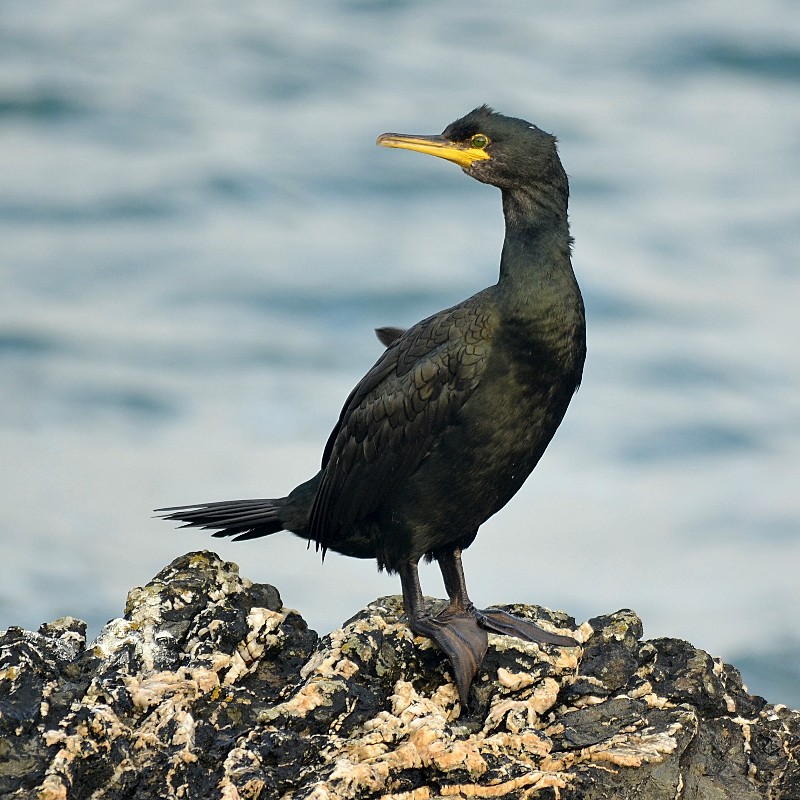Climate change warnings heat up
A new report published today (November 16) by the RSPB shows that Europe's wildlife is already being affected by climate change and these effects will only intensify over the course of this century.
The report, The Nature of Climate Change, reviews and compiles the existing evidence and shows that some of Europe's best-loved wildlife, from birds to bees, is already at risk from a changing climate and this will increase over coming decades. Also, a new poll of the British public has also found that Britons are more worried about climate impacts on the country's wildlife than any other aspect of climate change.
RSPB Director of Conservation Martin Harper said: "Climate change is the greatest long-term threat to people and wildlife. We are already seeing its impacts, and alongside other pressures on land and sea, our wildlife is increasingly at risk."
The report brings together the most compelling examples of how Europe's wildlife is already being affected by climate change:
- Extreme weather events have already become more frequent and intense due to climate change, and this trend will continue. Weather extremes can harm wildlife — for example, wet and windy springs can cause mass deaths ('wrecks') of Shags, and Britain supports 45 per cent of the world's breeding population.
- Wildlife will only be able to follow suitable climate if there is enough appropriate habitat available. One third of Europe's bumblebee species could lose 80 per cent of their current range by 2100. Better management of existing protected areas and the creation of new protected areas, alongside measures to make the wider landscape more wildlife-friendly, will play an important role in providing habitat to enable species to move.
- Species are diverging, in terms of timing, numbers and location. In the North Sea, climate change is changing sea conditions, with knock-on changes in plankton communities. However the incoming plankton species are less suitable than those they replace as food for sand-eels, a small fish which is in turn the main food source for Kittiwakes and other seabirds. Climate change is therefore a factor in the 70 per cent decline in Kittiwake populations in Britain in recent decades.
- As the climate changes, wildlife is having to move to follow suitable conditions northwards and uphill. As a result of these range changes, species are colonising new areas. This is what we would expect under climate change. Since 1900, at least 120 species have colonised Britain. Small Red-eyed Damselflies — first recorded in 1999 — are spreading through the country. Conversely, there are also signs that species ranges might be starting to retract north at their southern edges. Wildlife may be forced to move into areas where there is no habitat for it.

European Shags have begun to 'wreck' much more frequently as the overall weather conditions deteriorate across their range. (Photo: John Rowe)
A recent survey commissioned by the Energy and Climate Intelligence Unit (ECIU) shows that 79 per cent of Britons are worried about climate impacts on British wildlife, making it a greater concern than flooding (72 per cent), heat waves (50 per cent), or increased variability and prices of food (60 per cent).
Richard Black, Director of ECIU, said: "It's quite a surprising finding because you'd think people would be more concerned about potential impacts to their homes, their larders and their wallets. Instead it shows that Britain's long-standing love affair with birds, flowers and animals shows no signs of abating, and that recent studies demonstrating climate change impacts on animals such as Puffins, bumblebees and frogs have raised the alarm."
Martin Harper continued: "The report has a clear message that the world's governments need to act on fast, to limit climate change. They've no better opportunity to do this than the upcoming UN climate negotiations in Paris. Countries such as the UK also need to make sure they're making every possible effort to back up international ambition with action back home, in part by supporting the transition to a low carbon energy system."

